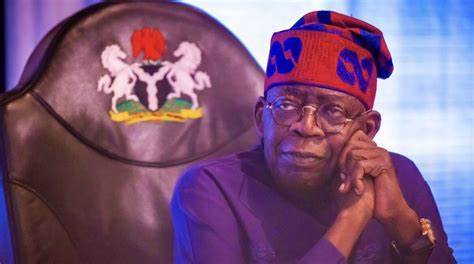The ruling All Progressives Congress has launched a fierce rebuttal against former Youth and Sports Minister Solomon Dalung following his explosive allegations that a powerful cabal has seized control of President Bola Tinubu’s government.
APC National Secretary Ajibola Basiru dismissed Dalung’s credibility in scathing terms, questioning both his intellectual capacity and ministerial performance while serving under former President Muhammadu Buhari’s administration.
“Who is Dalung? What was his scorecard when he served as a minister? He clearly lacks the intellectual depth to engage in matters of governance,” Basiru declared, characterizing the former minister’s allegations as baseless and unworthy of serious consideration.
The controversy erupted after Dalung granted an interview claiming that an influential cabal had effectively hijacked Tinubu’s presidency even before his May 2023 inauguration. The former minister alleged that the President never gained full control of his administration, suggesting that shadowy figures have been pulling the strings from behind the scenes.
Dalung claimed he had anticipated the current situation, stating that he warned Yoruba elders about the government’s potential hijacking just days before Tinubu took office. “From the time I met Tinubu as an aspirant to the moment he was elected, I knew we would end up exactly where we are today,” the former minister asserted.
The ex-minister pointed to the immediate removal of fuel subsidies on inauguration day as evidence of the cabal’s influence, arguing that such a significant economic decision was implemented without proper consultation or a complete cabinet in place. He blamed this rushed policy implementation for triggering widespread economic hardship, including soaring fuel prices and increased living costs across Nigeria.
Drawing biblical comparisons, Dalung likened himself to the prophet Jeremiah, claiming he had foreseen the current economic struggles. “I foresaw this and now live through the consequences, left only with lamentations,” he stated dramatically.
When pressed about similarities between his current criticism and previous complaints about Buhari’s administration, Dalung acknowledged parallels but argued that Tinubu’s alleged cabal poses a greater threat. He described Buhari’s inner circle as inexperienced amateurs compared to what he characterized as Tinubu’s sophisticated and manipulative advisers.
“Buhari’s cabal was made up of inexperienced people. Many of them had no idea how to run a government. Tinubu’s cabal, on the other hand, is filled with experienced, cunning, and highly ambitious individuals. They are manipulative and far more sophisticated,” Dalung claimed.
Basiru responded with equal intensity, challenging the logic behind Dalung’s cabal theory while highlighting the democratic institutions that continue to function under the current administration. “What cabal is he talking about when the National Assembly is there? His analysis is not only lazy but also devoid of substance. It’s hard to dignify such ignorance with a serious response,” the APC secretary stated.
The ruling party official suggested that Dalung and similar critics remain traumatized by their defeat in the 2023 elections, accusing them of deliberately ignoring the administration’s achievements while making unfounded allegations to undermine government credibility.
“People like him are still traumatised by the outcome of the last election. No matter what the administration does, they remain blind to the progress being made. They are determined to see nothing work, even when the evidence is clear,” Basiru argued.
Concluding his defense of the administration, Basiru emphasized that the government would not be deterred by what he termed “armchair critics,” challenging opposition voices to channel their dissatisfaction through democratic processes. “As Mr. President has made clear, we will not be distracted by armchair critics. Those who are dissatisfied should meet us at the ballot box,” he declared.
The exchange highlights the intensifying political rhetoric as various stakeholders position themselves ahead of future electoral contests, with both sides using strong language to defend their respective positions on Nigeria’s current governance challenges.

















